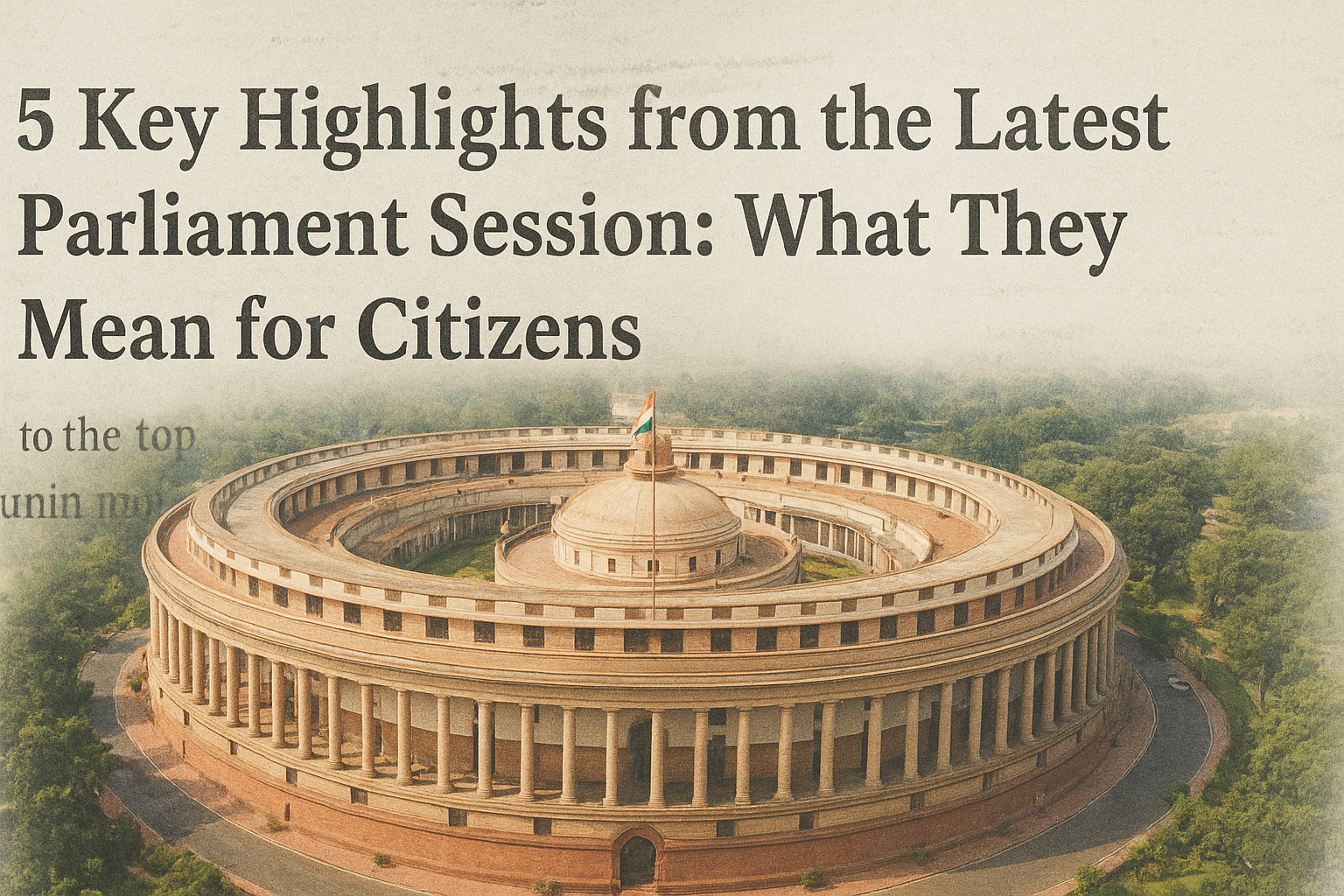New Delhi, October 2025: The Indian Parliament 2025 Monsoon Session concluded last week with intense debates, major policy introductions, and new laws that could impact millions of citizens. From gaming regulation to constitutional amendments, the session reflected the government’s focus on governance reforms and regulatory control.
Here are the five major highlights from the session and what they mean for everyday Indians.
1. Online Gaming Regulation Bill Passed
The Lok Sabha passed the Promotion and Regulation of Online Gaming Bill, 2025, amid loud protests from opposition benches. The bill aims to bring online gaming platforms under tighter government oversight to prevent addiction, money laundering, and unregulated betting.
“Online gaming has become a social concern — we cannot ignore its impact on youth,” said Union Minister Ashwini Vaishnaw, defending the move.
Citizen Impact:
- Real-money gaming platforms will now require licences and compliance audits.
- Stricter penalties are expected for illegal betting and gambling.
- The regulation could create a safer but more restricted gaming market.
2. Constitutional Amendment & UPSC Reforms
The government introduced the 130th Constitutional Amendment Bill, 2025, focusing on administrative changes in Union Territories and potential reforms in the civil services recruitment process (UPSC).
Officials say the reforms aim to decentralise decision-making and improve governance efficiency.
Citizen Impact:
- Changes could alter the structure of local administrations in UTs.
- Recruitment reform may introduce new merit-based evaluation systems.
- The long-term goal is to make governance more transparent and accountable.
3. National Sports Governance and Anti-Doping Bills
Sports policy took centre stage this session as the National Sports Governance Bill and the Anti-Doping (Amendment) Bill were tabled. The bills propose stricter oversight of sports federations and clearer anti-doping procedures.
Citizen Impact:
- Greater transparency in sports administration.
- Enhanced protection for athletes against biased selections.
- Potential for better grassroots sports infrastructure and monitoring.
4. Opposition Uproar Over Bihar Electoral Roll Revisions
The opposition repeatedly disrupted proceedings over alleged irregularities in the Special Intensive Revision (SIR) of Bihar’s electoral rolls. Members demanded an independent probe into claims of voter list manipulation.
Citizen Impact:
- The controversy may delay electoral preparations in key constituencies.
- Increased pressure on the Election Commission to ensure transparency.
- Renewed debate over the credibility of digital voter databases.
5. Record Legislative Productivity Despite Disruptions
Despite several walkouts and adjournments, Parliament recorded one of its most productive sessions in recent years. More than 20 bills were debated and passed, covering areas from education to technology.
Citizen Impact:
- Faster policy rollout in multiple sectors.
- However, critics argue that reduced debate time weakens scrutiny of new laws.
- The government faces pressure to balance speed with inclusivity.
What This Means for India
The Indian Parliament 2025 session showcased the government’s determination to modernize key sectors while maintaining political dominance in legislative affairs.
Policy watchers note that these moves could redefine governance structures, digital regulation, and civic participation.
A senior parliamentary affairs official commented, “This session demonstrates the government’s readiness to move swiftly on reform, even amid political noise.”
For citizens, the message is clear — policy change is accelerating, and the impact will be felt in jobs, digital freedom, sports integrity, and electoral fairness.
As the country heads into an eventful 2026 election year, government policies India and political updates from Parliament are set to remain trending topics across all media platforms.


























